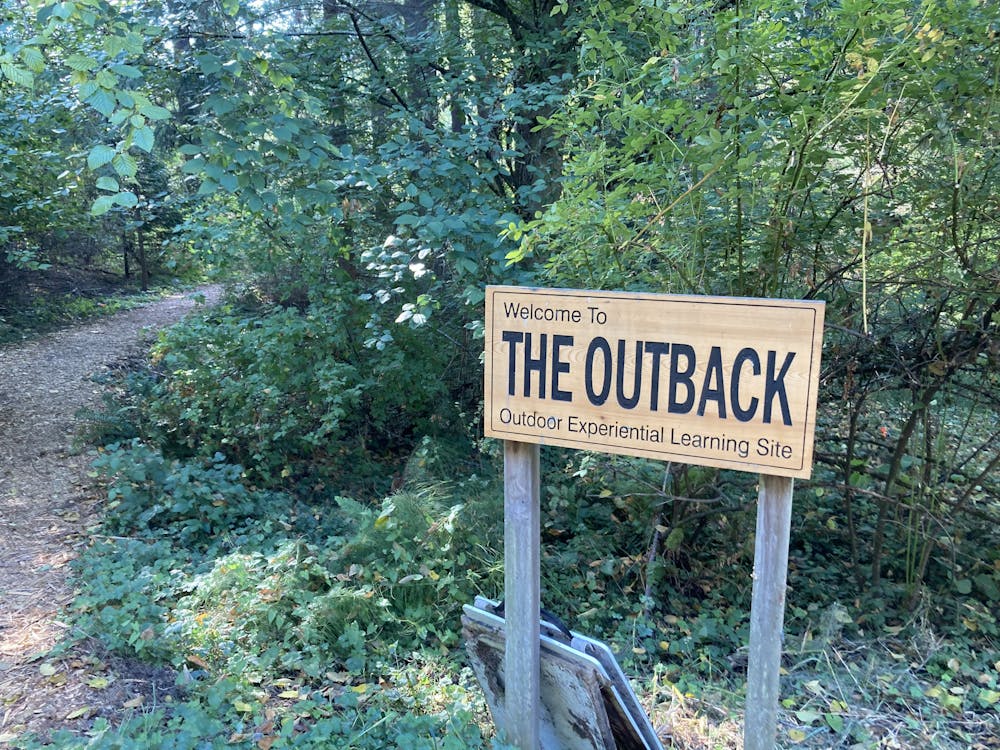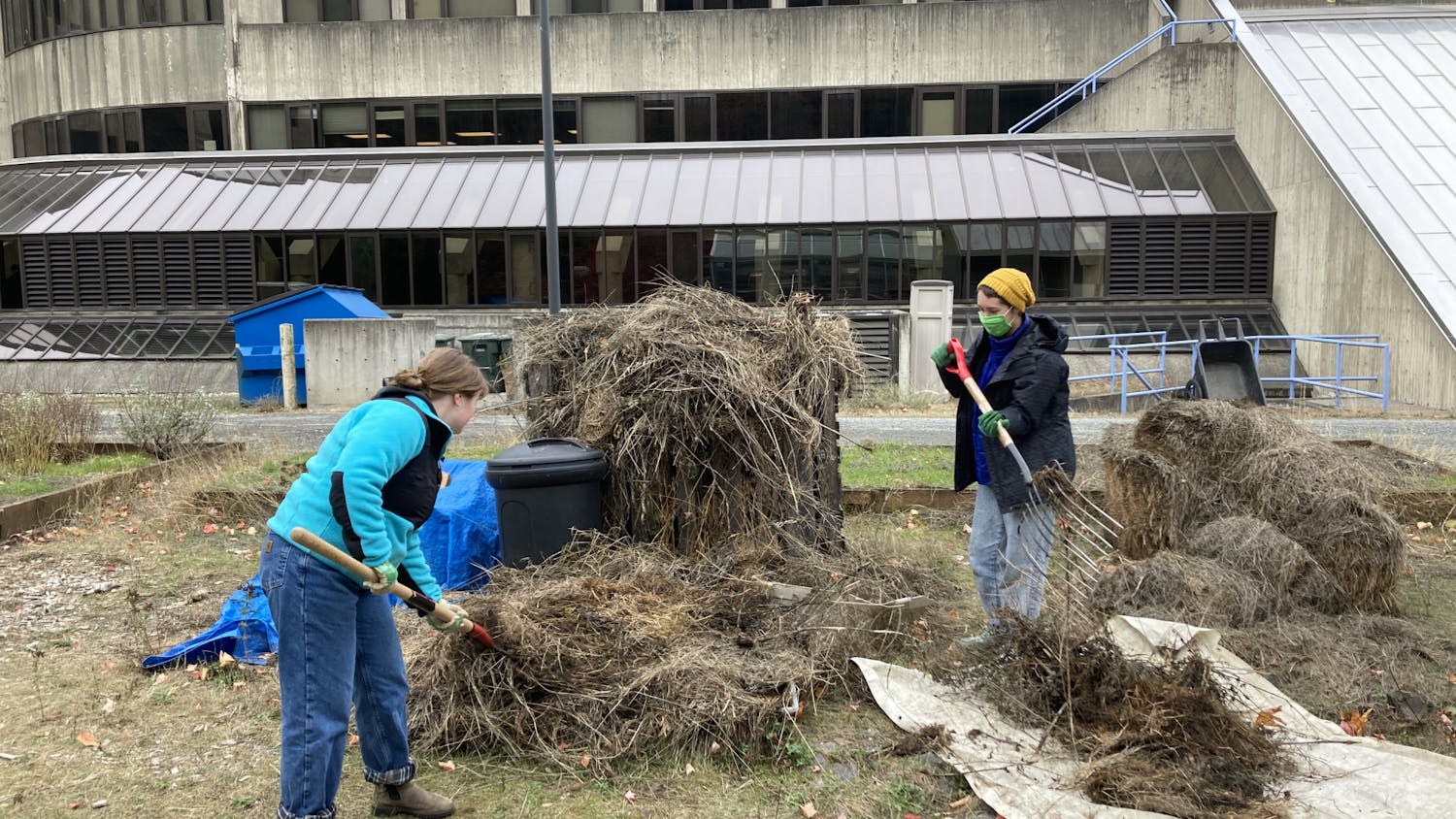Western Washington University's Outback Farm has worked with the Xerces Society to officially become a bee campus, allowing the farm to protect and keep these endangered insects in the campus's backyard.
“Becoming a bee-certified campus from the Xerces Society means that we are taking steps, collaboratively across campus to protect pollinators,” said Terri Kempton, firm manager of Outback Farm and teaching professor at Fairhaven College. “One is that we have an apiary, and we are giving students a chance to get involved with our most delicious animal partnership because we get to harvest their honey.”
The Outback Farm is also protecting these pollinators by using pesticides without harmful chemicals. They are providing a habitat for them as well, which is mostly native flowers and bushes that grew before the campus was built.
This relationship between the community and these bees is very mutual, as these native plants also provide a food source for pollinators.
“They help our crops grow, pollinate and produce seeds that we can use the next year,” Kempton said.
There are also many factors that pose a threat to these pollinators. Colony collapse disorder is one issue that threatens these hives. Colony collapse disorder is when all the worker bees leave the queen and the hive, and there’s no direct answer to the reason this occurs, eventually resulting in a beehive dying.
Another threat to these bees is a parasite called the varroa mite. A parasitization of varroa mites threatens the hive as a whole, as these parasites attach to the bees, weakening them, and creating the possibility of spreading viruses such as the acute bee paralysis virus or the deformed wing virus throughout the hive.
Avoiding these are crucial in maintaining a beehive. There is a lot of maintenance that comes with running a farm like this.
Sasha Mosier, the Outback’s Operation Coordinator and lead student beekeeper, stepped up to take care of and maintain the hive.
As the lead student beekeeper, Mosier is responsible for many tasks, such as maintaining hive checks, feeding the bees, and checking for mites. Mosier, along with the facilities management, takes care of the grounds to keep everything on the farm maintained.
“Nature is a complex and beautiful thing, and pollinators play an integral role in supporting life and biodiversity. A vast majority of crops are dependent on pollinators, which means we depend on pollinators,” Mosier said.
Les Scott, local beekeeper and business owner of “Les’s Bees,” explained how beekeeping is a seasonal hobby. The active season for bees begins during early spring, to help recover the overwintered colonies. When summer hits, Scott said beekeepers have to be very attentive to their hives in order to prevent swarming, which is a bee's way of reproducing, so there’s no issue of overpopulating the hive. Then going into winter, beekeepers provide food and storage for the bees to live through winter, until the bees prepare the honey for when it’s time to harvest. Then this cycle repeats heading into spring.
Scott said a good hive usually produces around 50-60 lbs of honey, whereas some hives can produce double this amount.
The Outback is a food justice-oriented farm, where they work on a mutual aid structure to support students. This means that all the honey produced by the farm is being distributed to Western students, and not sold on a market strategy.
There are other benefits to having a bee farm so close to Western.
“City beekeeping takes advantage of the huge variety of flowers, plants and trees producing pollen and nectar,” Scott said. “I think having an apiary on campus provides the opportunity for any student who might be interested in honey bees, to learn about bees and their interactions with nature.”
If there are students interested in beekeeping, there are two work parties a week where you don’t need background knowledge on beekeeping, one on Mondays from 3-5 p.m. and another on Wednesdays from noon-2 p.m. There are also opportunities to volunteer or join clubs that meet on the farm. With further information on this, contact either Terri Kempton or Sasha Mosier on the Outback Farms homepage to get started.
“It’s a great way for people to make that connection between their food and their lives, with the nature of what goes into creating that food, and that’s what we're all about at the farm — connecting students to their food system,” Kempton said.
Kota Sato (he/him) is a sports and recreation reporter for the Front and third-year student at WWU. Majoring in news/editorial journalism, he enjoys writing most on topics that revolve around American football or basketball.






